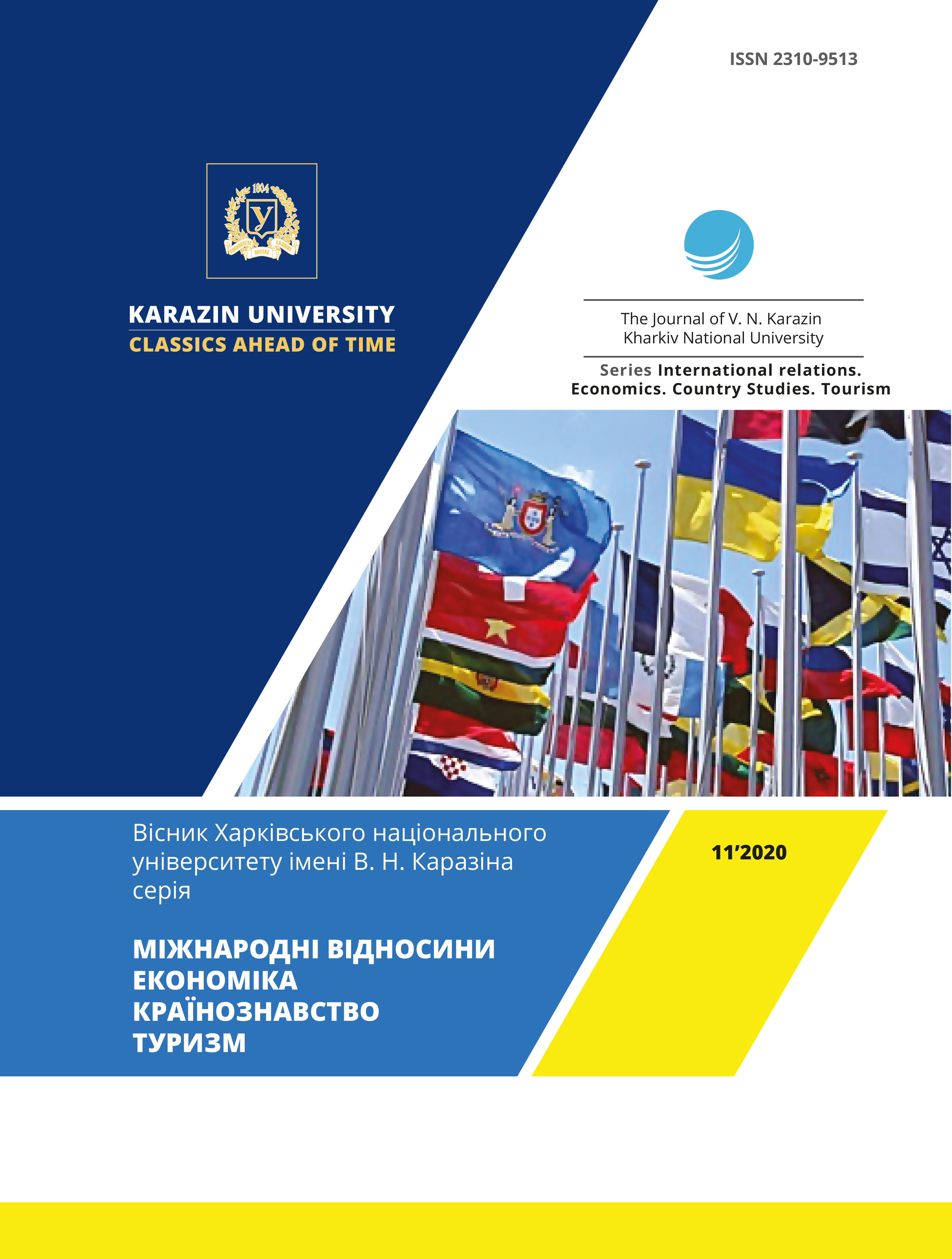Features of innovative development in the world economy in the conditions of digitalization of the economy
Abstract
The issue of the correlation of local and global is one of the main problem in comprehending the development prospects of modern society. The directions of development of the world economy are quite controversial and combine two components that reflect its glocalization, that is, the result of the transformation of economic relations of various types, levels and forms. The subject of this research is the evolution of the innovative development of entrepreneurship in the context of globalization and localization. The purpose of the article is to study and clarify the essential understanding of the concept of “glocalization” and the development of the theoretical foundations of the formation of a new scenario of economic development, taking into account the trends of the digital economy. Objective: to study the etymology of the concept of glocalization and to carry out a historical excursion into the process of its diffusion; to form an idea of the complementarity of the globalization of competition and the localization of sources of competitive advantage; identify the main criteria for the formation of an effective innovation environment; argumentation of the need to create a new scenario of economic development, taking into account the trends of glocalization in the digital economy. General scientific methods of analysis and synthesis are used. The following results were obtained: it was proved that the imposition of technological and integration processes taking place in modern society require clarification of the features of innovative development. Integration of the Ukrainian economy into the global economic space requires the creation of conditions for high-tech production and innovation. Conclusions: economic and political events of recent years have substantiated the increasing relevance of glocalization and fragmentation studies. It is necessary to
create a new scenario of economic development, namely, an innovative type of development. Updating the technological base of production, digitalizing the economy and building up intellectual capital is the basis of the innovative development of the economy.
Downloads
References
Batchenko L. V. (2004) Dialektyka hlokalizatsii abo lokalizatsiia yak vidpovid na vyklyky hlobalizatsii [The dialectic of glocalization, or localization in response to the challenges of globalization]. Prometheus. vol. 1, no. 13, pp. 25-29, p. 27. (in Russian)
Enright M-J. (2000) The Globalization of Competition and the Localization of Competitive Advantage: Policies towards regional clustering. The Globalization of Multinational Enterprise Activity and Economic Development / In: N. Hood, S. Young (eds.): Basingstoke: MacMillan.
Franсois С. (ed.) (1997) International encyclopedia of systems and cybernetics, Munchen: K.G. Saur.
Glocalization. Britannica. URL: https://www. britannica.com/topic/glocalization (accessed: 12.02.2020).
Govindarajan V., Trimble C. (2012) Reverse Innovation Create Far from Home, Win Everywhere. Boston: Harvard University Press.
Honcharova O. V. (2009) Poniatiino-katehoriina sutnist ta osnovni zasady hlokalizatsii [Conceptual and categorical essence and basic principles of glocalization] (electronic journal], Available at: http://base.dnsgb.com.ua/files/journal/Formuvannya-rynkovoi-ekonomiky/FRE-2009-22/2009_22-goncharova.pdf (accessed: 03.02.2020). (in Ukrainian)
Robertson R. (1995) Glocalization: Time-Space and Homogeneity Heterogeneity. Global Modernities / M. Featherstone, S. Lash, R. Robertson (Eds.). London, pp. 25–44.
Robertson R. (2003) Globalization or glocalization? Globalisation. Critical concept in sociology / R. Robertson, K. E. White (Eds.) London, pp. 31-51.
Shumpeter Y. (2007) Teoriya ekonomicheskogo razvitiya [Theory of Economic Development]. Moskva : EKSMO. (in Russian)
Zverjakov M. Y. (2018) Teoretycheskaja paradyghma ustojchyvogho razvytyja y ukraynskye realyy [The theoretical paradigm of sustainable development and Ukrainian realities]. Economy of Ukraine, vol. 10, pp. 10-31.
Citations
ГЛОКАЛІЗАЦІЯ ТУРИСТИЧНОГО ПРОСТОРУ ЯК ІННОВАЦІЙНИЙ ПІДХІД РОЗВИТКУ ТУРИЗМУ В СВІТІ ТА УКРАЇНІ
Долгова Катерина (2022) Grail of Science
Crossref
Authors who publish with this journal agree to the following terms:
- Authors retain copyright and grant the journal right of first publication of this work under the terms of a license Creative Commons Attribution License 4.0 International (CC BY 4.0).
- Authors are able to enter into separate, additional contractual arrangements for the non-exclusive distribution of the journal's published version of the work (e.g., post it to an institutional repository or publish it in a book), with an acknowledgement of its initial publication in this journal.
- Authors are permitted and encouraged to post their work online (e.g., in institutional repositories or on their website) prior to and during the submission process, as it can lead to productive exchanges, as well as earlier and greater citation of published work.




